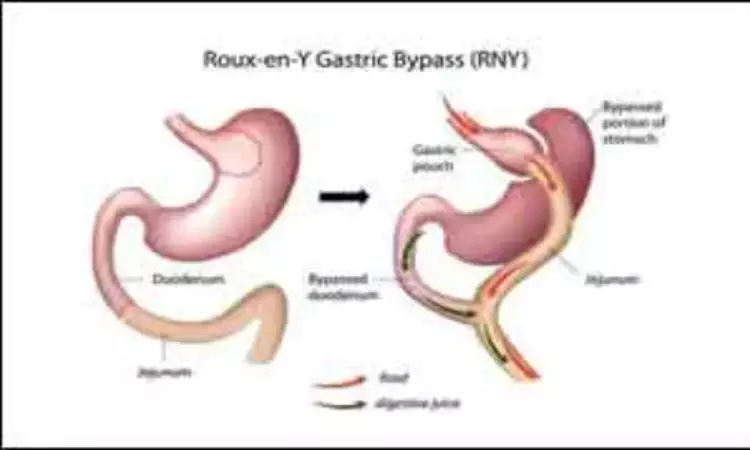- Home
- Medical news & Guidelines
- Anesthesiology
- Cardiology and CTVS
- Critical Care
- Dentistry
- Dermatology
- Diabetes and Endocrinology
- ENT
- Gastroenterology
- Medicine
- Nephrology
- Neurology
- Obstretics-Gynaecology
- Oncology
- Ophthalmology
- Orthopaedics
- Pediatrics-Neonatology
- Psychiatry
- Pulmonology
- Radiology
- Surgery
- Urology
- Laboratory Medicine
- Diet
- Nursing
- Paramedical
- Physiotherapy
- Health news
- Fact Check
- Bone Health Fact Check
- Brain Health Fact Check
- Cancer Related Fact Check
- Child Care Fact Check
- Dental and oral health fact check
- Diabetes and metabolic health fact check
- Diet and Nutrition Fact Check
- Eye and ENT Care Fact Check
- Fitness fact check
- Gut health fact check
- Heart health fact check
- Kidney health fact check
- Medical education fact check
- Men's health fact check
- Respiratory fact check
- Skin and hair care fact check
- Vaccine and Immunization fact check
- Women's health fact check
- AYUSH
- State News
- Andaman and Nicobar Islands
- Andhra Pradesh
- Arunachal Pradesh
- Assam
- Bihar
- Chandigarh
- Chattisgarh
- Dadra and Nagar Haveli
- Daman and Diu
- Delhi
- Goa
- Gujarat
- Haryana
- Himachal Pradesh
- Jammu & Kashmir
- Jharkhand
- Karnataka
- Kerala
- Ladakh
- Lakshadweep
- Madhya Pradesh
- Maharashtra
- Manipur
- Meghalaya
- Mizoram
- Nagaland
- Odisha
- Puducherry
- Punjab
- Rajasthan
- Sikkim
- Tamil Nadu
- Telangana
- Tripura
- Uttar Pradesh
- Uttrakhand
- West Bengal
- Medical Education
- Industry
Men more prone to major postoperative complications after bariatric surgery, finds study

USA: Males are at higher risk of major postoperative complications and 30-day mortality following bariatric surgery, suggests a recent study in the journal Surgical Endoscopy. The study further found that males represent only 20% of all bariatric surgery patients despite the similar prevalence of obesity in males and females.
Obesity is considered as a significant health problem worldwide. Male patients undergoing bariatric surgery have (historically) been considered higher risk than females. Nicholas Dugan, Carolinas Medical Center, Charlotte, NC, USA, and colleagues examine the disparity between genders undergoing laparoscopic sleeve gastrectomy (SG) and laparoscopic Roux-en-Y gastric bypass (RYGB) procedures and assess gender as an independent risk factor.
The researchers reviewed the MBSAQIP® Data Registry Participant User Files for 2015–2017 for patients having SG and RYGB. They were divided into groups based on procedure and gender. Variables for major complications were grouped together, including but not limited to PE, stroke, and MI.
Key findings of the study include:
- Of 429,664 cases, 20.58% were male.
- Univariate analysis demonstrated males were older (46.48 ± 11.96 vs. 43.71 ± 11.89 years), had higher BMI (46.58 ± 8.46 vs. 45.05 ± 7.75 kg/m2), and had a higher incidence of comorbidities.
- Males had higher rates of major complications (1.72 vs. 1.05%) and 30-day mortality (0.18 vs. 0.07%).
- Significance was maintained after subgroup analysis of SG and RYGB.
- Propensity matched analysis demonstrated male gender was an independent risk factor for RYGB and SG, major complications [2.21 vs. 1.7% (RYGB), 1.12 vs. 0.89% (SG)], and mortality [0.23 vs. 0.12% (RYGB), 0.10 vs. 0.05% (SG)].
"Males continue to represent a disproportionately small percentage of bariatric surgery patients despite having no difference in obesity rates compared to females. Male gender is an independent risk factor for major post-operative complications and 30-day mortality, even after controlling for comorbidities," concluded the authors.
The study, "Male gender is an independent risk factor for patients undergoing laparoscopic sleeve gastrectomy or Roux-en-Y gastric bypass: an MBSAQIP® database analysis," is published in the journal Surgical Endoscopy.
Dr Kamal Kant Kohli-MBBS, DTCD- a chest specialist with more than 30 years of practice and a flair for writing clinical articles, Dr Kamal Kant Kohli joined Medical Dialogues as a Chief Editor of Medical News. Besides writing articles, as an editor, he proofreads and verifies all the medical content published on Medical Dialogues including those coming from journals, studies,medical conferences,guidelines etc. Email: drkohli@medicaldialogues.in. Contact no. 011-43720751


